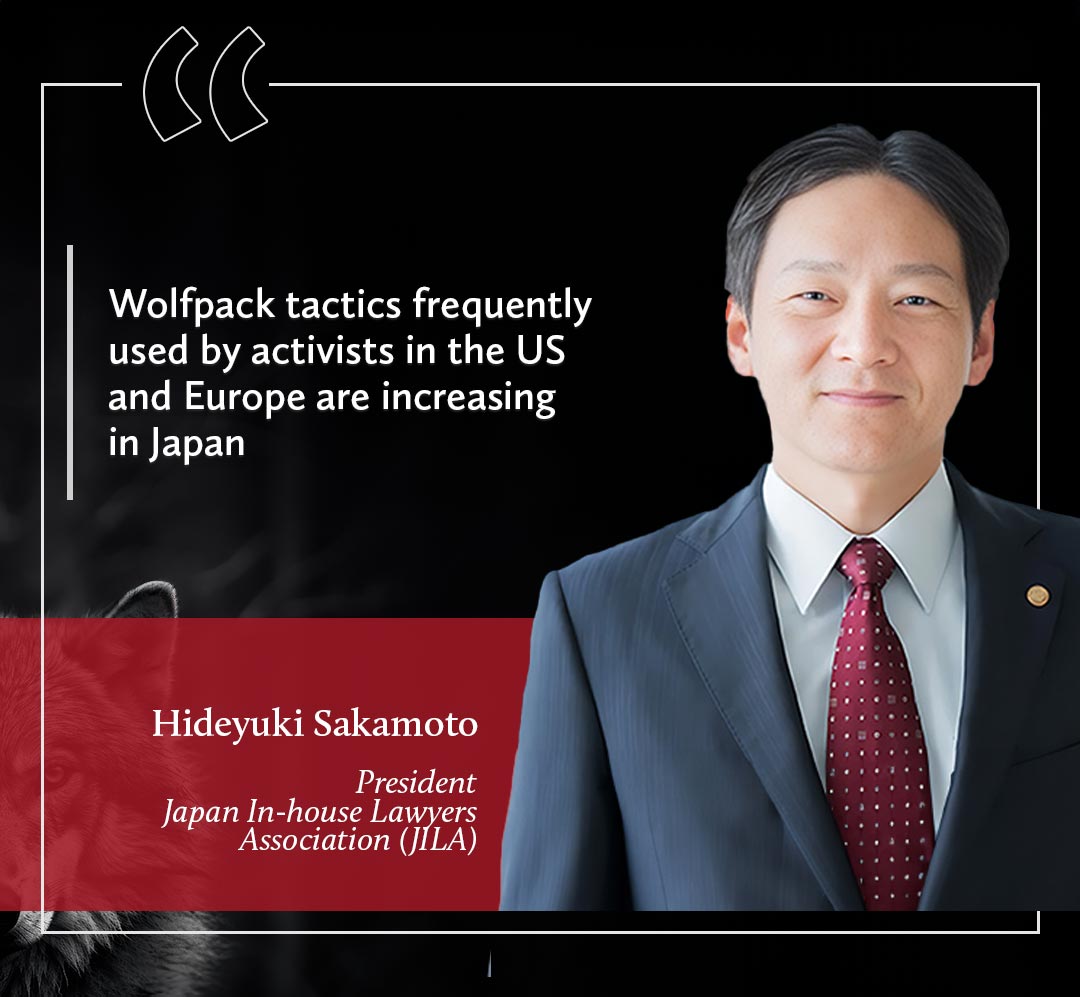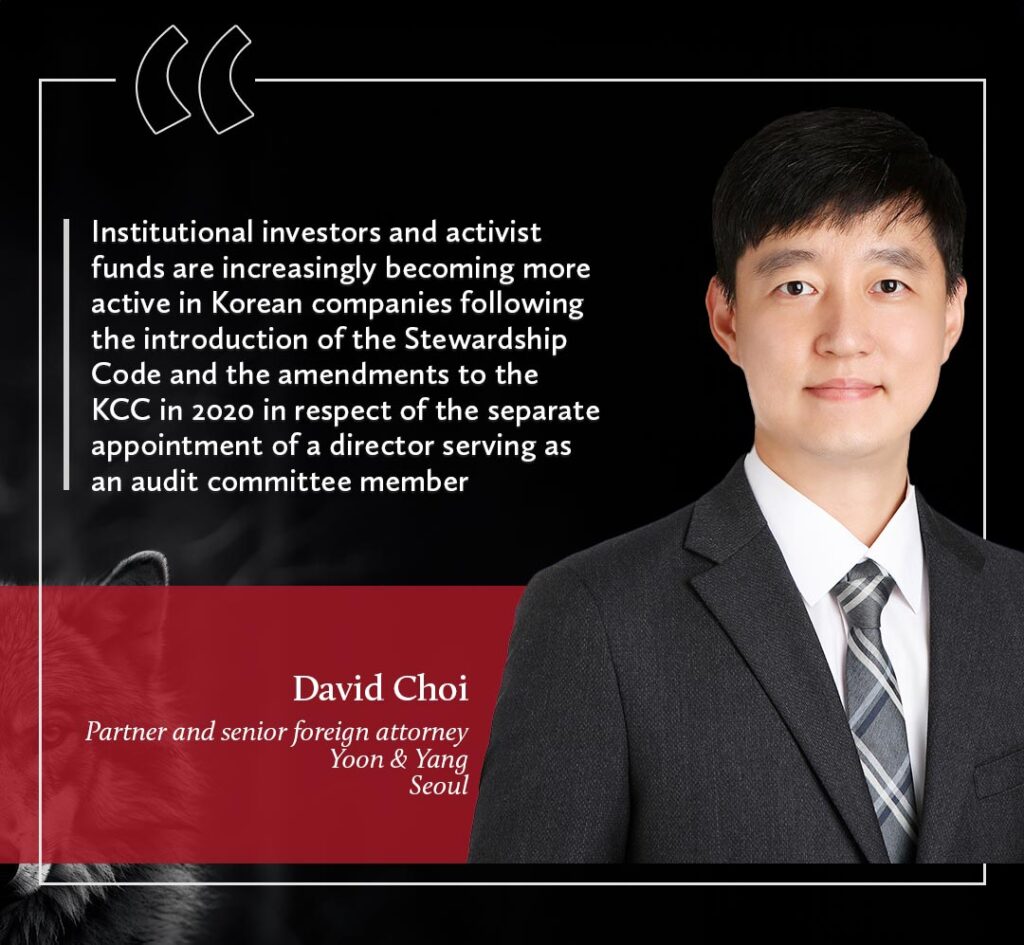When activist shareholders come knocking, general counsel hold a unique position between their boards, regular investors, and the campaigners. They are the point person to everyone, writes Chandu Gopalakrishnan.
Corporate lawyers across India were glued to a particular development in February 2023: an emergency general meeting called by leading shareholders of Think & Learn, the holding company of India’s hottest new education technology unicorn, Byju’s.
Prosus, a major investor among the six who initiated the meeting, wanted Think & Learn founder Byju Raveendran removed as CEO, among other demands.
More than 60% of shareholders voted to oust Raveendran and his family from their positions, citing concerns over mismanagement and failures within the company. The management has contested the legitimacy of the vote, and the meeting’s decisions await the judgment of a court.
Byju’s was the latest Indian company to face what is essentially an everyday affair in the US and EU – investor activism.
Curiously, corporate India got its biggest jolt of investor activism exactly a year before the Byju’s meeting, when US activist investor Hindenburg Research targeted Indian conglomerate Adani Group over allegations of stock manipulation and accounting fraud.
A report by Hindenburg sparked controversy, leading to a significant decline in Adani’s market value and drawing scrutiny over its financial practices. Adani Group, and the entire state paraphernalia, reportedly went on the defensive, with the company denying the allegations and threatening legal action against the activist investor.
What used to be discreet meetings have become open lawsuits. India has finally joined the list of Asian economies where minority shareholders have started staging organised campaigns against established businesses.
What is investor activism?
Shareholder activism, or minority shareholder campaigning, refers to the active involvement of shareholders in influencing the strategic decisions and operations of a company in which they hold equity.
They may seek changes like altering a company’s corporate governance practices, greater transparency from its management, or resolutions to address perceived injustices.
Shareholder activism can take various forms, including:
Proxy contests. Shareholders contest the election of existing board members or propose alternative candidates through proxy voting;
Resolutions. Shareholders propose resolutions at annual general meetings to address specific issues like executive compensation, environmental policies or corporate governance;
Engagement. Shareholders engage directly with a company’s management and board of directors through meetings, letters or public statements to express concerns or advocate for changes;
Public campaigns. Shareholders launch public campaigns to raise awareness about certain issues and garner support from other shareholders or stakeholders; and
Litigation. Shareholders take legal action to address perceived breaches of fiduciary duty, conflicts of interest or other alleged misconduct by a company’s management or board.
Most activist investors launch public proxy fights for control within an organisation. Typically, this conflict arises when shareholders express dissent about aspects of corporate governance, with particular attention often directed towards directorial and management roles.
In Asia
Activist investment has been less prevalent in Asia than regions like North America and Europe, but is gaining momentum. “Asia is becoming a hotbed for activist activity, with a 23.9% increase in the number of campaigns launched in 2023,” says Josh Black, editor-in-chief at Diligent Market Intelligence.
Black says activist investors typically look for companies that have underperformed their peers or are undervalued in a way that can be fixed with a change of strategy. Often, disagreements emerge between boards and activists over the timeline or extent of such changes.
“While activity in Hong Kong did not change drastically, cheaper valuations combined with governance improvements in Japan and Korea have helped make Asia the second-most active activism market after North America,” says Black.
Several factors contribute to trend
Growing capital markets. As capital markets in Asia continue to develop and mature, there’s increased access to capital and greater participation from institutional investors, providing more opportunities for activist investors to engage with companies.
Corporate governance reforms. Efforts to improve corporate governance standards in many Asian countries have created an environment more conducive to shareholder activism. Regulatory reforms and initiatives for enhancing transparency, accountability and shareholder rights have helped empower investors to assert their influence.
Economic growth and market opportunities. Asia’s dynamic economies and emerging market opportunities have attracted attention from global investors seeking to unlock value in undervalued or underperforming companies through activist strategies.
Cross-border activism. Activist investors from North America and Europe have increasingly targeted Asian companies, leveraging their existing expertise and resources.
Unlike the US and Europe, activist investment in Asia still faces challenges such as cultural differences, regulatory complexities and the dominance of family-owned businesses in certain markets.
However, as awareness of shareholder rights increases and corporate governance standards continue to improve, activist investment is expected to become more prevalent in the region over time.
Unlike the earlier days of discreet moves and confidential discussions, several activist investment campaigns and minority shareholder agitations in the Asia region have gone all out in the past decade. US-based investors and funds active in Europe and the US were prominent players in the following campaigns.
Toshiba Corporation (Japan)
In 2017, Toshiba faced pressure from activist investors after experiencing financial difficulties, including accounting scandals and massive losses in its nuclear power business. Effissimo Capital Management, a Singapore-based fund, was one of the major shareholders involved in the campaign.
Activist investors demanded improved corporate governance, strategic reforms and the appointment of independent directors to oversee the company’s operations. Toshiba reacted, including restructuring its business and selling non-core assets.
Samsung Electronics (South Korea)
Elliott Management, a US-based activist hedge fund notorious for its aggressive tactics, launched a high-profile campaign against Samsung in 2016, pushing for corporate governance reforms and restructuring.
Elliott Management was the primary shareholder involved in the campaign. It called for Samsung to adopt a holding company structure, increase dividends, and enhance transparency and shareholder rights.
While Samsung initially resisted Elliott’s proposals, the company eventually announced plans to streamline its corporate structure and increase shareholder returns. However, Samsung did not fully adopt Elliott’s proposed changes.
Olympus Corporation (Japan)
In 2011, Olympus faced a major scandal involving accounting fraud. Subsequently, minority shareholders, including foreign institutional investors, engaged in activism to demand reforms. US-based investment firm Southeastern Asset Management was one of the prominent players.
Shareholders called for management changes, improved transparency and governance reforms to address the accounting irregularities and restore investor confidence. Olympus implemented various measures including management changes, improved corporate governance practices and enhanced
financial transparency.
China Evergrande Group (China)
In 2017, Hong Kong-based activist investor Oasis Management campaigned for changes at China Evergrande Group, the most valuable real estate company in the world at that time.
The fund advocated for increased transparency and corporate governance. While there were discussions between the company and activists, no major changes were implemented at that time.
Khazanah Nasional (Malaysia)
In 2019, Malaysia’s government-linked investment fund Khazanah Nasional faced scrutiny from minority shareholders over its governance and investment decisions. Various minority shareholders, including institutional investors and pension funds, voiced concerns. Shareholders called for greater transparency, accountability and reforms in Khazanah’s governance practices.
The Malaysian government initiated reforms to address governance issues at Khazanah, including changes to the fund’s board structure and investment strategy.
Minor International (Thailand)
In 2018, Thai hospitality and retail company Minor International faced pressure from activist investors over its acquisition of shares in Spanish hotel chain NH Hotel Group.
US activist hedge fund Elliott Management was at the forefront of the campaign. Investors questioned the rationale behind the NH Hotel Group acquisition and sought clarity on the company’s strategy and capital allocation.
Minor International defended its acquisition strategy and engaged with shareholders but did not reverse its decision to acquire NH Hotel Group.
Ascendas Hospitality Trust (Singapore)
In 2016, activist investor Quarz Capital Management targeted Ascendas Hospitality Trust, a real estate investment trust, over its management fees and performance.
The fund called for a reduction in management fees, improved performance metrics and greater transparency. The trust engaged shareholders and made some adjustments to its fee structure, but did not fully meet all of Quarz Capital Management’s demands.
These examples highlight some of the significant activist investment campaigns and minority shareholder agitations since 2015. The varied outcomes depended on the nature of the issues, the companies’ responses and the effectiveness of the activist investors’ strategies.
“In Asia, activists typically advocate for returning more capital to shareholders through dividends or share repurchases, unwinding cross-shareholdings and strategic reviews,” says Diligent’s Black.
“The number of companies in Asia that were publicly subjected to remuneration-related demands by primary and partial-focus activists also increased more than any other region in the world.”
After checking documents including advisories for companies, investor and company press releases, and analysis reports, Asia Business Law Journal has classified activist investors based on their motivations, strategies and objectives. Here are some common themes.
Financial activists. Focused on maximising shareholder value through strategies like share buybacks, dividend increases and cost-cutting;
Governance activists. Concentrate on improving corporate governance practices including board reforms, executive compensation and transparency measures;
Environmental, social and governance (ESG) activists. Advocate for sustainable and responsible business practices, emphasising environmental protection, social responsibility and ethical behaviour;
Strategy activists. Seek to influence the strategic direction of companies through changes like mergers, divestitures or shifts in business strategy; and
Shareholder rights activists. Aim to protect and enhance shareholder rights by advocating measures like proxy access and voting reforms.
Asian hotbeds
Japan and South Korea have been leading the field when it comes to public campaigns mounted by minority shareholders and activist investors.
Hideyuki Sakamoto, the president of the Japan In-house Lawyers Association (JILA), highlights the surge in shareholder proposals in his country, citing a tenfold increase in activist investment in Japanese companies since 2010.
Common demands by activists include dividend increases, strategic business changes and governance reforms.
“Wolfpack tactics frequently used by activists in the US and Europe are increasing in Japan,” Sakamoto told ABLJ. “This is a tactic in which multiple activists work together to increase pressure on the target company.
“In Japan, the ease of requesting an extraordinary shareholders’ meeting, and the weak enforcement of regulations on reporting of large shareholdings, have contributed to the increase in wolfpack tactics.”
In South Korea, the legal rights of minority shareholders under the Korean Commercial Code (KCC) enable them to submit proposals, request special shareholders’ meetings and file derivative actions.
However, companies have legal mechanisms to reject proposals and defend against activist campaigns, such as counter-proposing incompatible agendas and restricting voting rights of large shareholders, says Hyeongjoon David Choi, a partner and senior foreign attorney at Yoon & Yang in Seoul.
“Institutional investors and activist funds are increasingly becoming more active in Korean companies following the introduction of the Stewardship Code and the amendments to the KCC in 2020 in respect of the separate appointment of a director serving as an audit committee member,” says Choi.
According to a study conducted by the Korea Listed Companies Association (KLCA), the number of shareholder proposals increased by 78.6% in 2023 over the previous year.
“In respect of Korean companies’ shareholder return policies, the shareholder proposals relating to the acquisition and retirement of treasury stocks have significantly increased as compared to the past, when dividends were the main topic of interest for the minority shareholders,” he says.
Jun Frank, managing director, compensation and governance advisory, at proxy advisory service ISS-Corporate says: “Activism in Asia is still at a very early stage. Many Asian companies have very large shareholders that they can count on. In India, particularly, many founding families have significant stakes in the company.”
Frank says Japan is the Asian market where investor activism has increased considerably because it is mature, has high institutional investor ownership, and has a lower concentration of management-friendly shareholders.
The JILA’s Sakamoto agrees. “It is expected that activist activities and takeover bids will further increase in Japan and that industry restructuring will continue,” he says.
However, countries such as India and Hong Kong give minority shareholders a better say in the working of the company they’ve invested in. That provides an opening for activist investor funds to launch their campaigns.
“Sections 241-246 of the Companies Act 2013 provide relief and protection to members of a company against acts of oppression and mismanagement, including the acts of majority members which are prejudicial to the interest of the company or public interest, or its stakeholders including minority shareholders,” says Manisha Chaudhary, managing partner at UKCA and Partners in Delhi.
“Small shareholders also have the right to appoint a director on the board who will be treated as an independent director. Minority shareholders also have rights, under section 230-232, during amalgamation or schemes of arrangement with creditors or shareholders. Minority shareholders may also have rights under shareholders’ agreements, especially if … ratified into the articles of the company.”
Legal respite might not come easy for activist investors in India, as courts generally do not intervene in internal decision-making. However, they are empowered under the Companies Act to intervene in cases of oppression and mismanagement, says New Delhi-based lawyer Gauri Subramanium, an independent Supreme Court advocate.
“Oppression refers to the conduct that is prejudicial to the interests of the company or its members, and mismanagement refers to the improper or inefficient conduct of the affairs of the company,” she says.
“In the case of Byju’s, the investors, along with support from other shareholders, have filed in the National Company Law Tribunal alleging oppression and mismanagement and seeking a declaration that the founders are unfit to run the company. The petition also sought appointment of a new board.
“While the interpretation of oppression principles has evolved through case law, illegal acts must be accompanied by malicious intent or be unduly burdensome to qualify as oppressive. Most importantly, for an action to succeed, the absence of probity or good conduct are essential elements of oppressive actions. For the action to succeed against Byju’s, conduct and probity will need to be examined before the [tribunal] can use its discretion to decide the matter.”
Traditionally, activist investors are seen as being interested in short-term gains from reducing expenses or divestiture and asset sale. Investor activism is increasing in markets such as Japan due to a greater awareness among general investor community, says Frank. “When a company gets targeted by an activist, there is usually a reason. Some of the changes that they suggest have merit. Domestic investors realise that and are becoming more willing to support these campaigns.”
This is where the in-house counsel’s role becomes important.
“When you have activists at the door demanding change or even trying to take over the company, fiduciary responsibility to deal with them falls on the board of directors. At the end of the day, it is the board’s responsibility to act in the best interests of the shareholders,” says Frank.
“The general counsel’s duty is to ensure that the board members are well informed and that they understand risks and opportunity in the activist investor’s demand.”
Keep up with the pulse of the market is crucial, explains Frank. For instance, the Sovereign Wealth Fund Institute has listed 76 activist investor funds. The news of any of them planning to raise a stake in a company should put its GC on alert.
“You should be engaging with your shareholders, both domestic and overseas, on a regular basis so that you have an established relationship and channel of communication. That way, even if an activist comes knocking, you already have the support and trust of a shareholder base,” says Frank of ISS-Corporate.
JILA’s Sakamoto says interactions with activists can be seen as an opportunity for a target company to improve external discipline on management, and to review its management strategies for further growth.
Chaudhary, of UKCA, echoes the importance of communication. “Communication and transparency go hand in hand with compliance for shareholders to repose trust in the company and its management. Also, ethical business practices are the need, especially with huge investments being made,” she says.
“There should be documentation and information available to investors and shareholders of the business decisions being made so that the ‘business judgement rule’ can be invoked or applied. No challenge to such a decision will stand its ground [if] made after deliberating upon a clear picture presented by a company’s records and audits.”
Engaging with the activist is equally important. Understanding their demands and motives help in building a case that improves the strategy of the company in improving shareholder value and making investors understand the merit in it.
“Some managers and GCs make the mistake of dismissing the claims of the activists and refuse to engage with them, which may lead to much worse confrontations,” says Frank. “First you should sit with activists and hear their case. There may be certain suggestions that could be beneficial to your company.
“There are several instances where activists have worked well with the companies, even toned down their public campaigns when they reach an agreement with the boards.
“GCs hold a very unique position in the event of an activist campaign. They have to inform and support the board. They also function as a point person for activist shareholders and the broader investor community.”
































